Tokunbo Wahab, a man of quiet authority, real horsepower, commitment to equity as a lawyer and public servant hits the big Five-O, writes GBENGA BADA
A Rising Son
It is hardly easy to know where to start the story of people of real accomplishments. And if unsure of where to start, the beginning is always a reasonable starting point. So, off to the beginning. May 17, 1972: the household of Olugbenga and Muyi Wahab welcomed a son who, as it turned out, would become the pride of the family, town, state, and country at large. Named Tokunbo Philip Wahab, the little boy arrived into a family of leaders, naturally inheriting leadership genes. His father, who hailed from the Otuwunmi Ateshinmara royal dynasty of Ketu in the Epe Local Government Area of Lagos State, was a well-known community leader widely referred to as Dodo. Until his death in 1998, he was a force to reckon with in his community and Epe as a whole.
His mother was a prominent woman political leader, both in Epe and Sagamu, the latter was her roots in the Sosanya Aberuagba clan. A dogged grassroots mobiliser, who tirelessly supported the presidential ambition of the late Chief Moshood Kashimawo Olawale Abiola, but passed away on June 12, 1993, a few hours after casting her vote for the business mogul.
With many lessons drawn from his parents’ experiences about life, leadership, humanity, and politics, Tokunbo was quick to find his guiding principle when he led fellow students on the University of Benin campus.
Committed to equity, fairness, and justice for all, he stood up the murderous dictatorship of the military regime led by the late General Sani Abacha in the wake of the annulment of the 1993 presidential election.
As a student union leader and president of the Law Students Union of UNIBEN, he led many protests against the annulment and the restoration of democracy. As with pro-democracy activists of that era, he found himself in the “gunsights” of the regime, as he was almost rusticated. At the height of the confrontation with the military government, he was assaulted by the military personnel in April 1994 and was later thrown in detention for weeks.
The experience, along with the learnings from his parents further shaped his decision to continually seek fairness, equity and justice for all.

For equity and justice
After graduation from the University of Benin, and undergoing the rigours of the Nigerian Law School as well as the compulsory NYSC scheme, he started his law career at Paul Usoro & Co. He subsequently joined Aluko & Oyebode and Jiti Ogunye Chambers respectively before pitching his tent with Walls and Ace practitioners as a Managing Partner.
Overnight success? Hardly. Unlike many of his peers, whose antecedents in humanitarian gestures remain vague, Wahab’s have remained traceable and undimmed. In his first two years as a lawyer, all he asked from his principal was a monthly transport allowance to enable him to travel around to handle various matters pro bono for members of the vulnerable segment of the society-the indigent, a service he renders till date.
As a reward for his dedication to humanity, Wahab earned himself a Lagos State Recognition Award from ex-Governor Babatunde Raji Fashola (SAN) during the Lagos Public Interest Law Partnership (LPILP) in April 2014.
Despite his achievements in law and public office, Wahab prefers to shun the limelight. That is unusual for a man with his resume, which shows him as an alumnus of the prestigious Harvard Kennedy School of Government and the Wharton University of Pennsylvania, a member of the Nigerian Bar Association (NBA) and the International Bar Association (IBA).

A loyal team player
With over 15 years of experience in the legal world and 50 years of learning, unlearning, and relearning the true virtues that stand him out, Wahab has distinguished himself as an asset value for the service of the people in every capacity.
Little wonder the ebullient father of two and loving husband was quick to distinguish himself as a round peg in a round hole when the Lagos State governor, H.E Babajide Sanwo-Olu, called him on board to join him in serving and delivering on the dividends of democracy and good governance to the people of Lagos State.
Despite being one with various accomplishments in the legal world, Governor Sanwo-Olu was not in doubt of his leadership abilities to drive the education arm of his THEMES agenda. And with his quality of thinking, it has been a cocktail of accomplishments in the education sector of Lagos. Two things have worked in favour of the team player, who is loyal to his principal: his belief that anything worth doing at all is worth doing well and a good listening ear to collect input and filter for a greater purpose. Governor Sanwo-Olu is always proud when Wahab’s impact through his government is felt in the education sector of Lagos state. From the Eko Excel to the official recognition and collection of certificates for the two new Lagos State Universities to capacity development for the committee of the management and heads of all Lagos State tertiary institutions, Wahab continues to outdo himself.
Without necessarily meddling in other cabinet members’ ministries, Wahab is known to be one of the eyes and ears of Governor Sanwo-Olu that is closest to the grassroots and who shares in the governor’s passion for taking Lagos to a more enviable height.

Hala TW
Wahab’s love for three things – football, philanthropy and culture- endears him to the public. He is no passive football fan, as evidenced by his flaming for the Super Eagles and La Liga giants, Real Madrid. At the mention of ‘Hala Madrid,’ his face brightens up.
A firm believer in upholding tradition and culture, the Ketu-Epe-indigene neither shies away from his roots nor the ways of his people. His taste in cultural and indigenous Nigerian music sees him swaying from the golden tunes of King Sunny Ade to the Miliki vibes of Chief Ebenezer Obey, which are accustomed to serenading guests at social gatherings in and outside the shores of Nigeria.
Eric Liu, a former White House speechwriter, and author, once expressed characteristics of a true patriot saying, ‘true patriotism doesn’t require that we all join the military. It does require us all to show up more, contribute more, participate more, (and) be more useful to more people. To vote, volunteer, serve, listen, learn, empathize, circulate power rather than hoard it.’
It is without a doubt that Wahab strikingly commands the relentless tribute of a patriot, who will continue to serve in all and any capacity as a progressive while delivering dividends of democracy.




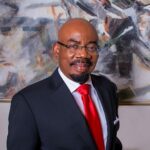
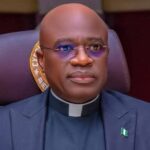
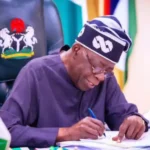



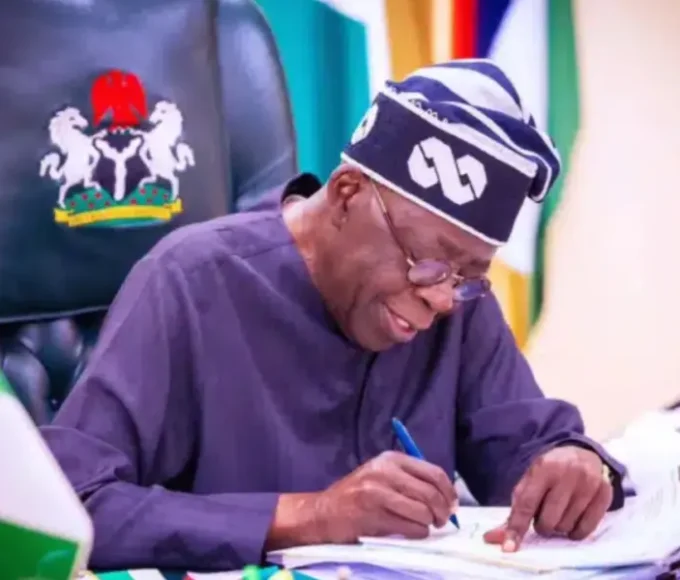


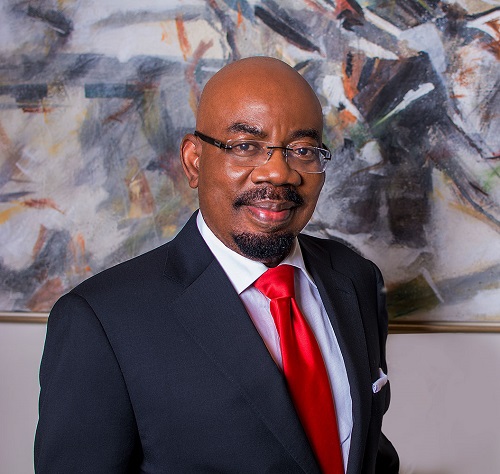
Leave a comment